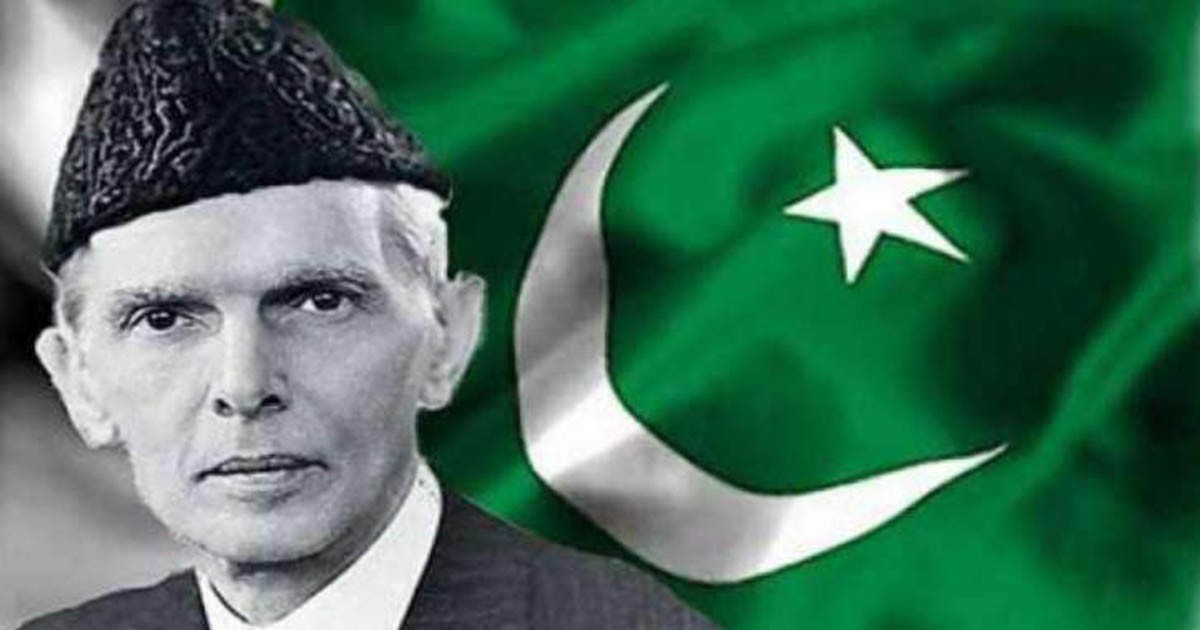A Pakistani political scientist, Ishtiaq Ahmed, has recently published a book on Jinnah that accuses him of being a religious bigot and communalist who colluded with the British to partition India into many different parts against the wishes of its people. According to him, Jinnah did so out of religious zeal and animosity against the Hindu majority. Although he has offered no credible evidence or proof to support the hypothesis, understandably, the book has gained widespread popularity in India and made the author a much sought-after popular guest on high-profile TV shows in the country.
The book itself is filled with misstatements, distortions and even fabrications. To make matters worse he has disregarded well-documented facts and given few references in support of his claims. It leads one to question the gentleman’s claim of being a historian. History is what actually happened and not what anyone thinks happened, as Mr. Ishtiaq Ahmed seems to think.
Read more: Indian leader receives backlash for praising Jinnah
Understanding the matter better
The resolution passed by the Muslim League in Lahore in March 1940, which eventually led to the creation of Pakistan, directed the Muslim League Working Party as a whole, not Mr. Jinnah exclusively, to work for ‘ —– geographically contiguous units to be demarcated into regions which should be so constituted, with such territorial readjustments as may be necessary, that the areas in which the Muslims are numerically in a majority as in the North-Western and Eastern Zones of India, should be grouped o constitute “The Independent States” in which the constituent units shall be autonomous and sovereign’.
The resolution does not mention the ‘Two-Nation Theory’ nor is the word Pakistan used nor did it call for the partition of India as such. It was on this basis that in June 1946 Muslim League had accepted the Cabinet Mission Plan which visualized three autonomous groupings of provinces. The resolution also does not mention Islam, the establishment of an Islamic State or the implementation of Sharia. These were first implied by the Hindu press to arouse alarm, fear and opposition among the non-Muslims.
It was only after independence that the meaningless claim that Pakistan was created for Islam was made. It made no sense since Islam lies in the minds and hearts of all Muslims and does not need a piece of territory to survive and prosper. Nonetheless, the slogan had an emotional appeal and still does for those not inclined to critically examine such matters. It was taken up by the religious parties largely to re-establish their relevance to Pakistan. The reality is that all of the Islamic religious parties had opposed the partition of India and fielded their own candidates in the Muslim seats in the 1945 election against those of Muslim League, as indeed did the Congress. In the end, Muslim League won every single Muslim seat in the Central Legislature from every corner of India.
Read more: Did mullahs oppose Jinnah’s Pakistan?
The religious parties were routed everywhere along with Congress
Maulana Husain Ahmed Madani of JUI had gone so far as to issue a fatwa in October 1945 declaring it haraam for Muslims to vote for Muslim League. Mazhar Ali Azhar of Majlis-e-Ahrar said Jinnah was not Quaid-e-azam but ‘Kafir-e-azam’. Maulana Ata Ullah Shah Bokhari used the foulest language possible in public addresses to denounce Jinnah. Maulana Mashriqi’s Khaksars made two attempts on Jinnah’s life. As for Jamaat-e-Islami’s founder Maulana Abul Ala Maudoodi, he declared Pakistan to be na-Pakistan (see his ‘Musalman aur Maujooda Siasi Kashmakash vol. III‘, published by the office of The Tarjuman-ul-Koran, Pathankot, 1942, p.108).
In his television appearances in India and elsewhere, Mr. Ishtiaq Ahmed insists that Jinnah was a fundamentalist and communalist who wanted to ‘break up India into many different pieces’. There is not an iota of credible evidence presented by him so far to support the claim. The reality is very different as described by Jinnah’s companion and confidant, Amir Ahmed Khan, Raja Sahib of Mahmudabad in his article, ‘Some Memories‘ in the book, ‘Partition of India: Policies and Perspectives, 1935-47‘ by Cyril Henry Philips and Doreen Wainwright, pp 388-9.
Read more: Jinnah-Class Frigate: Pakistan Navy’s JF-17
Addressing Muslim Legislators Conference in Delhi in April 1946, Jinnah had himself categorically stated, ‘What are we aiming at? It is not for theocracy, nor for a theocratic state‘. His vision for Pakistan was for her to become an Islamic democratic state in which every citizen, regardless of race, religion or sect enjoyed equal rights.
The writer is a retired naval officer and the author of ‘Pakistan: Roots, Perspective and Genesis’ and ‘East Pakistan Separation: Myth and Reality as well as some other books. The views expressed in the article are the author’s own and do not necessarily reflect the editorial policy of Global Village Space.














